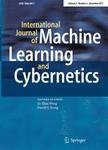版权所有:内蒙古大学图书馆 技术提供:维普资讯• 智图
内蒙古自治区呼和浩特市赛罕区大学西街235号 邮编: 010021

作者机构:Chongqing Univ Posts & Telecommun Chongqing Peoples R China
出 版 物:《INTERNATIONAL JOURNAL OF MACHINE LEARNING AND CYBERNETICS》 (国际机器学习与控制论杂志)
年 卷 期:2024年第15卷第5期
页 面:1927-1948页
核心收录:
学科分类:08[工学] 081101[工学-控制理论与控制工程] 0811[工学-控制科学与工程] 081102[工学-检测技术与自动化装置] 0812[工学-计算机科学与技术(可授工学、理学学位)]
主 题:Evolutionary computation Evolutionary algorithms Genetic algorithm Firefly algorithm Differential evolution algorithm Artificial bee colony algorithm
摘 要:In the evolutionary algorithm, an intuitive phenomenon is that the eliminated bad particles are also beneficial to convergence in evolutionary algorithms by preventing the generated particles from being close to those eliminated bad particles. Most existing algorithms do not take full advantage of the historical information of these particles or use surrogate models without guaranteeing approximation accuracy. In this study, we propose a multi-granularity general framework to divide the feasible region into different granularities by utilizing completely random trees and computing the spatial distribution of individuals. Secondly, through the sampling and migration strategy, make full use of the sparsity of the calculated individual space distribution and the locality of the best individual in history to replace the poor individual in the current population to speed up the local convergence speed of the algorithm. The time complexity of the algorithm using this framework is equal to the maximum between the time complexity of the evolutionary algorithm using this framework and O(tMlogM), where M denotes the number of points and historical particles generated in an iteration and t denotes the number of iterations. Therefore, the additional computational cost incurred by this framework is very low. Experiments on 12 classical functions, including high-dimensional functions, show that the proposed framework can improve four respective evolutionary algorithms and achieve significantly better results in terms of convergence performance and optimization accuracy.